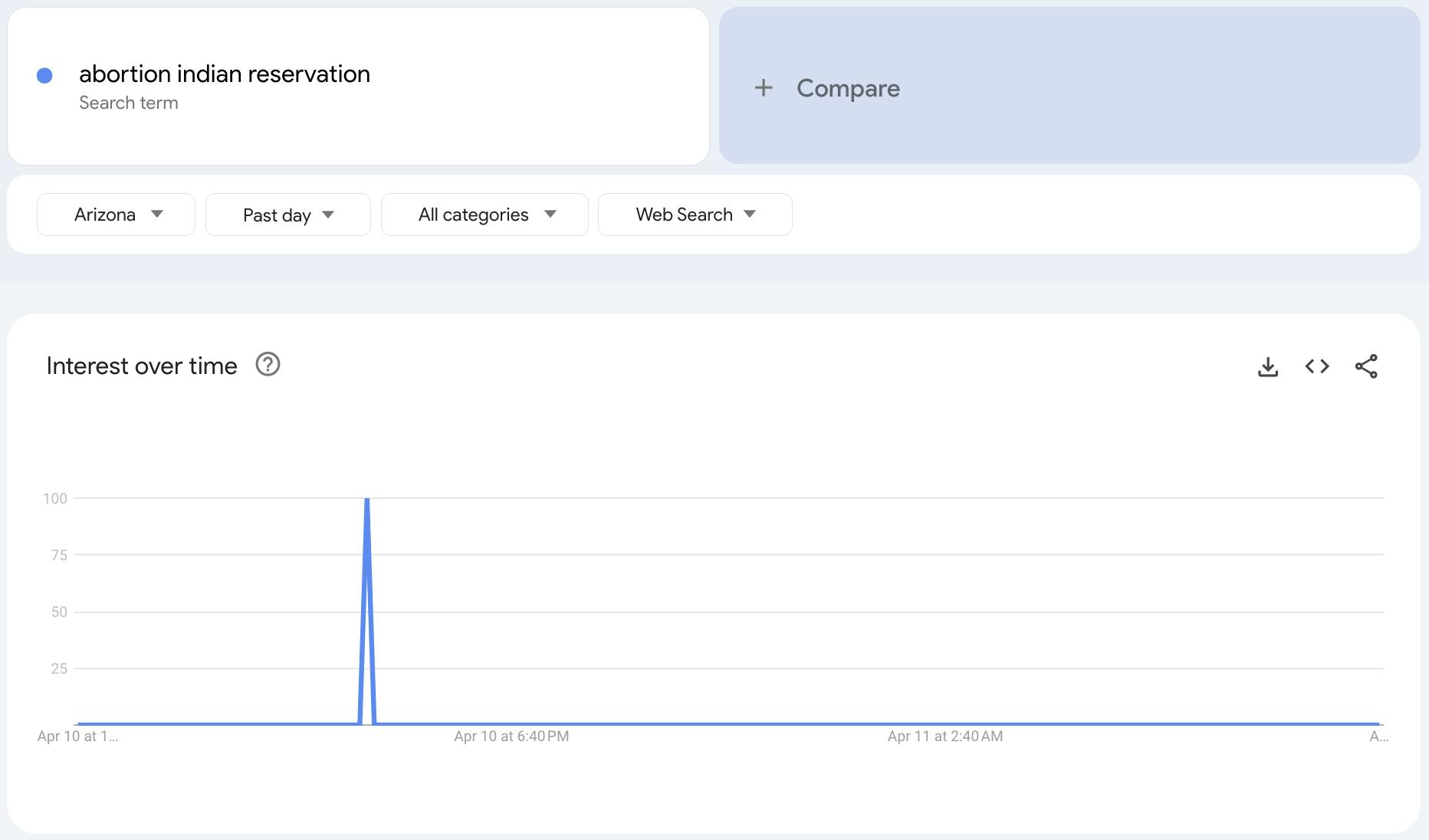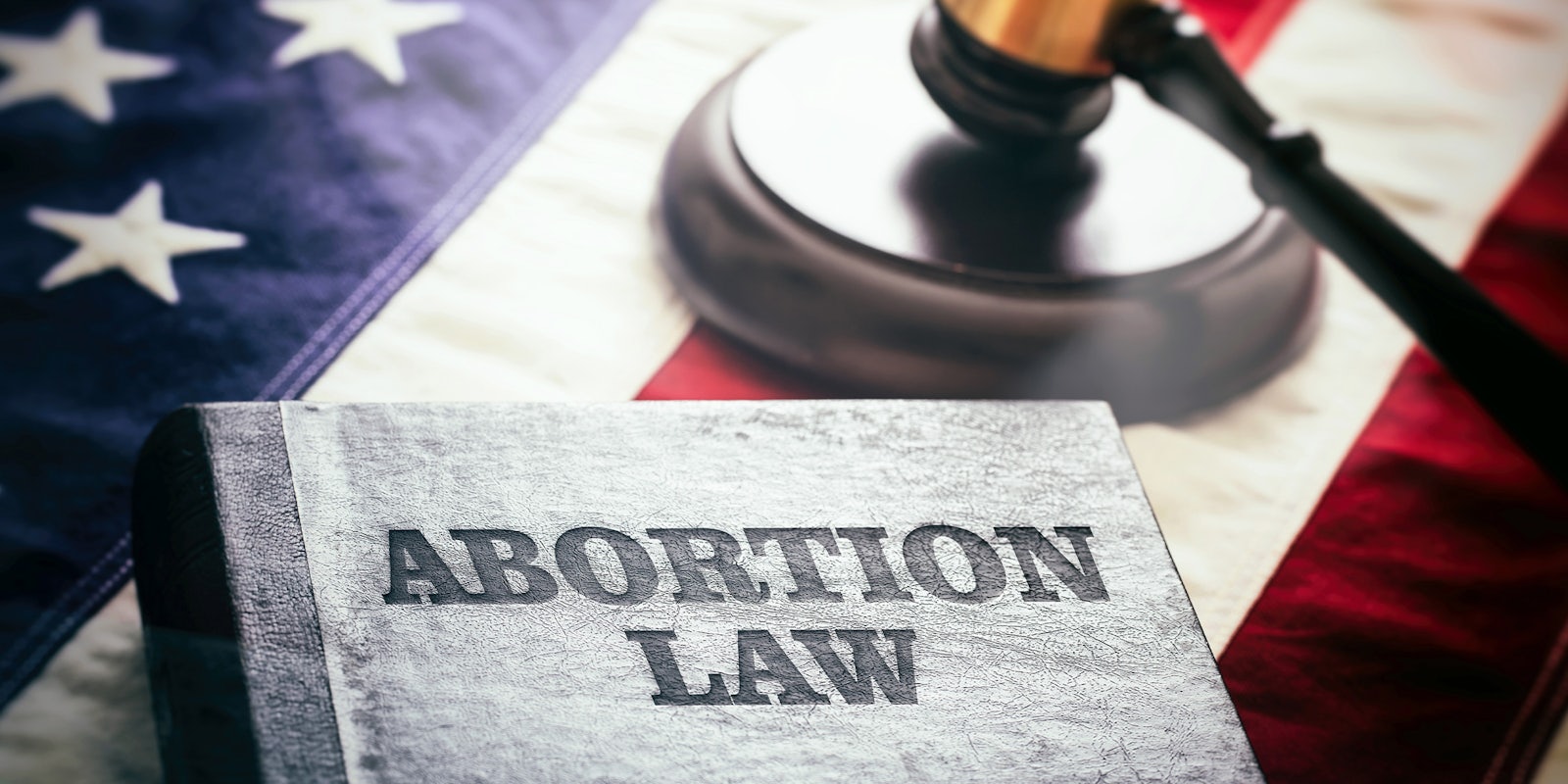Yesterday, Arizona’s legislature upheld the state’s 1864 complete abortion ban after its Supreme Court did the same. In the aftermath, some posited abortions could be performed on Native American reservations.
Online posts containing misinformation about abortions on reservations tend to spike when legislatures and courts restrict abortion state or nationwide, as do searches about the possibility of getting an abortion on a reservation.
In tweets posted this week, X users asked Native Arizonans living on reservations—and journalist Rachel Maddow, in one case—if it would be possible to open abortion clinics on reservations so those in need could bypass the state’s all-out ban.
“Now that Arizona has decided that the state will now use a 1864 law to ban abortions,” an X user tweeted, “can the 20 Federally recognized Native American Reservations create women’s health clinics to fill the reproductive health void that the state of Arizona just created?”
“Don’t Indian Reservations still have the right to perform abortions on their grounds?” another wrote. “I’m sure there are plenty in Arizona.”
Google searches in Arizona of the term “abortion Indian reservation” also spiked yesterday shortly after the state’s legislature didn’t overturn the 1864 law.

And the same happened after the U.S. Supreme Court overturned Roe v. Wade, its 1973 decision that created federal protections for abortion. Viral tweets, like one from prominent Native American X account John Martin, demanded that reservations create abortion clinics to service Native and non-Native people.
“Setup abortion clinics on Indian reservations,” Martin tweeted in June 2022. “Whereas, sovereign nations, Supreme Court decisions, like overturning Roe V Wade — DO NOT APPLY.”
However, getting an abortion on a reservation was already difficult before Roe was overturned. What’s more, reservations are the recipients of federal funding—and the Hyde Amendment bans federal funding from being used for abortions.
That means abortion clinics on reservations would need to be paid for by private funding, even though tribal lands have very limited financial resources.
“All of a sudden, this issue that’s going to impact white women too—or impact white women more broadly—now we’re being seen as the potential savior,” Rachael Lorenzo, an Indigenous woman and the director of the non-profit Indigenous Women Rising told KFF Health News in 2022. “It should not be on tribal nations to go above and beyond when so many tribal nations already have very limited resources.”
And though the extremely slim possibility of abortions on reservations has been extensively reported on, misinformation continues online. Even Jacqueline Keeler, a Native activist most well-known for her controversial “Alleged Pretendian List” tweeted the fallacy that local laws are moot on reservations.
“Interesting,” Keeler tweeted on Tuesday. “State law doesn’t apply to reservations.”
The internet is chaotic—but we’ll break it down for you in one daily email. Sign up for the Daily Dot’s web_crawlr newsletter here to get the best (and worst) of the internet straight into your inbox.


